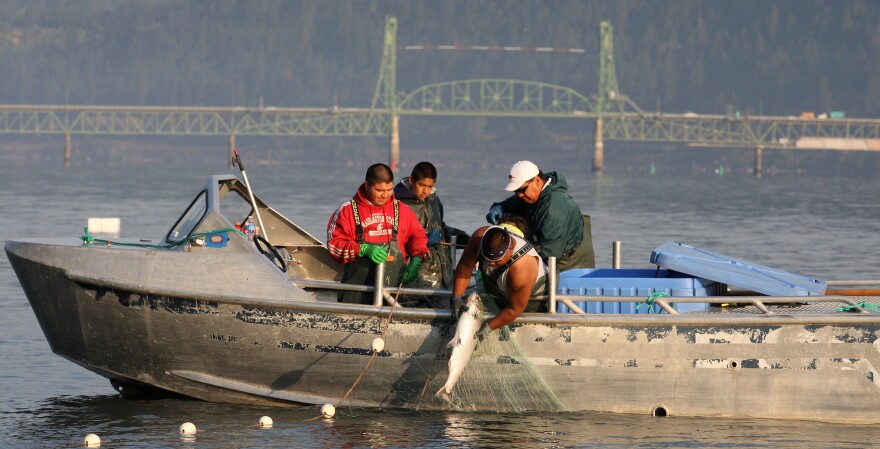February 12 marks the 50th anniversary of a turning point in Washington state law. The Boldt decision of 1974 affirmed the fishing rights of 20 tribes who brought suit against the state, with the help of the U.S. Attorney.
In accordance with treaties signed throughout the Pacific Northwest in the 1850s, Judge George Boldt ruled the agreements in which these tribes ceded land accorded them rights to 50% of Washington’s fish returns.
Judge Boldt also said the tribes should be co-managers of fishing resources off the reservations and included hatchery fish in their rights. That led to establishment of the Northwest Indian Fisheries Commission, which to this day has representatives of all 20 treaty tribes who serve as co-managers of state fisheries.
And an important subsequent ruling from District Court Judge William Orrick extended the definition of co-management, said Lummi Business Council Secretary Lisa Wilson, who is the Commission’s vice chair.
“It wasn't just the fish; it was actually the habitat that we needed to sustain those fish. He said to dip one's net and come up empty, makes that treaty meaningless,” she said.
Wilson was among the speakers at a sold-out two day symposium marking the 50th anniversary of Boldt's ruling. Concern about effective conservation and management of dwindling resources was top of mind there. Co-management is more challenging than ever – above all, because of climate change.
“Used to be we would manage around El Niño/La Niña — warm or cold, cold or warm, these shifts in the marine environment…” said Quinault tribal member Ed Johnstone, the current chair of the Northwest Indian Fisheries Commission.
With fish returns lower and less predictable than ever, he said big fixes are needed, like the recent Loraine Loomis Act to protect riparian zones alongside rivers. It was introduced by Gov. Jay Inslee in the 2022 legislative session amid much fanfare, but failed because of opposition from landowners — primarily farmers.
“We have the science. We know what the challenges are. Is there the political will to do that?” Johnstone asked. “We’re working through those issues, so we can bring back those listed stocks.”
He said he hopes the state Growth Management Act can be leveraged to speed up habitat restoration, which currently remains much slower than development.
Johnstone said if something doesn’t change soon, many iconic fish runs are in danger of blinking out.
Produced with assistance from the Public Media Journalists Association Editor Corps funded by the Corporation for Public Broadcasting, a private corporation funded by the American people.







